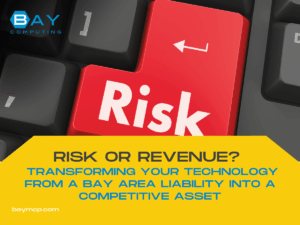Business IT Security And Why You’re Floundering Without It
Business IT Security and Why You’re Floundering Without It
Intitially, the term “IT security” may seem out of reach for many small business owners, or possibly even like a luxury, but as ransomware, BYOD-policies and compliance requirements become incraesingly common in the workplace, a lack of security can actively hamper growth, even and particularly with. At worst, it can sink the entire enterprise.
Many small- and medium-business owners know that IT security is something they should care about, but they have no idea how to manage it. One study by the National Cyber Security Alliance found that a whopping 59 percent of small business owners have no plan in place to prevent data breaches.
Even industries that revolve around preparing for the worst can be affected. IT help desk services can often be the first the line of defense for insurance companies, financial services firms, and healthcare providers in San Francisco, Oakland, or elsewhere throughout the greater Bay Area.
In fact, insurance companies are one example where a lack of network support services might have an outsized impact. Insurance companies regularly deal with highly sensitive data, including names, Social Security numbers, birthdays and addresses. Having the right IT support is essential.
What’s at Stake
The cost of data breaches can be enormous for small business owners. Research from Atlanta-based payment technology firm First Data shows that as many as 90 percent of data breaches can be traced back to small businesses, and the average cost of a breach to small businesses can be as high as $50,000 or more. That would be devastating for most small businesses and doesn’t even begin to account for the loss of trust from your customers. IT service continuity is critical.
What Companies Can Do
Experts say that, at the very least, small businesses can enact the following controls:
- Secure all your business data. Security experts at Kroll say businesses should only keep the data they need.
- Stay current with security patches and updates. This can be more difficult than it seems, especially for busy small businesses.
- Require the strongest possible passwords.
- Establish an Internet usage document and make employees sign it.
- Limit access to your network outside of private workspaces.
- Consider a professional IT security audit.
Looking Inward
No one wants to think about a worst-case scenario, but threats to business data aren’t likely to go away any time soon. Unfortunately, employees are often at unwittingly at the center of them. Data from TrendMicro found that nearly 60 percent of employees surveyed “very frequently or frequently stored sensitive data on their laptops, smartphones, tablets, and other mobile devices.” This may mean that more sophisticated IT support is needed to prevent a worst-case scenario in the era of Bring Your Own Device (BYOD). Rather than relying on stop-gap measures, having your IT services provider regularly work on prevention may secure your business now and in the future.




